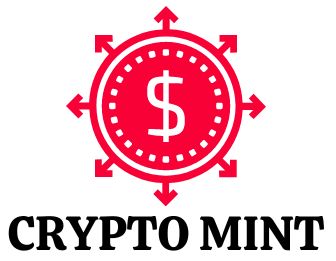Following the implementation of a 30% tax rate, cryptocurrencies in India are now subject to an additional 1% tax deduction at the source (TDS) effective from July 1. This means that Indian citizens selling their cryptocurrency assets, such as Bitcoin, Ethereum, Tether, BNB, Shibu Inu, Solana, and Dogecoin, among others, will receive 1% less of the asset’s value at the selling price. Experts have varying opinions on this new TDS policy. Some argue that it could deter cryptocurrency investments and harm the industry, while many cryptocurrency platforms in India have begun implementing this policy and educating investors.
The 1% TDS will be deducted from any Indian resident transferring their virtual digital assets (VDA). However, the Central Board of Direct Taxes (CBDT) has provided exemptions for certain cases. TDS will not be deducted if the consideration is ₹50,000 in a financial year for specific individuals or Hindu Undivided Families (HUFs) who don’t have any other income under “profit and gains of business or profession.” Additionally, exemptions are applicable to individuals or HUFs whose gains from business or profession don’t exceed ₹1 crore or ₹50 lakh, respectively.
Furthermore, TDS exemption is up to ₹10,000 in a fiscal year for any person other than a ‘specified person.’
Regarding the TDS rule, Rajagopal Menon, Vice President at WazirX, stated, “We are complying with the government’s directive on 1% TDS, and the updates on our exchange and P2P platforms went live yesterday. The new update ensures transparent tax deductions to keep users informed throughout the crypto buying experience. Established processes are in place to collect TDS for relevant transactions.”
Menon explained that the TDS collected needs to be converted to INR and paid to the Income Tax Department. For ease of conversion and to reduce price slippage, in Crypto-to-Crypto transactions, the TDS for both parties is deducted in the quote (or primary) Crypto asset.
WazirX currently supports four quote assets: INR, USDT, BTC, and WRX. For example, in markets like MATIC-BTC, ETH-BTC, and ADA-BTC, where BTC is the quote Crypto asset, the TDS of both the buyer and seller would be deducted in BTC.
Here’s an example of how TDS will be deducted as per the WazirX expert:
- In INR markets: 1 BTC traded for 100 INR. BTC seller receives 99 INR (after 1% TDS deduction), while the BTC buyer receives 1 BTC (no TDS deducted).
- In Crypto-to-Crypto markets: 1 BTC sold for 10 ETH. The BTC seller receives 10 ETH by paying 1.01 BTC (after 1% TDS addition), and the BTC buyer receives 0.99 BTC (after 1% TDS deduction).
- In P2P trades: 1% TDS is deducted before a USDT sell order is placed. Therefore, no TDS has to be paid by the P2P USDT buyer.
Menon clarified that if the entire 99 USDT is not successfully sold, then 1% TDS would be deducted only in proportion to the amount sold, and the remaining 1 USDT locked for TDS would be released back to the seller on order cancellation.
As for the potential implications of TDS, Menon mentioned, “At present, it is still premature to predict the ramifications of TDS. We will be in a better position to understand this by the second week of July. Our focus is more on adhering to the new tax rules and meeting the required standards that are being set. There has been a fall in trading across the industry as investors shift to holding, and there may be another dip as traders see their capital getting locked while trading on KYC-compliant Indian exchanges.”
Amajot Malhotra, Country Head of Bitay, believes that the TDS rule will discourage innovators who are promoting India as an innovative hub for the cryptocurrency industry. He also anticipates that the Indian government may lose significant tax revenue due to reduced cryptocurrency transaction volumes on platforms.
When the 30% tax rule was introduced, there was a substantial decline in cryptocurrency trading on Indian platforms, leading to a loss of confidence in the market and decreased investor interest in cryptocurrencies. The recent selloff in the global crypto market due to macroeconomic uncertainties has exacerbated these issues. According to CoinMarketCap, the global crypto market cap has decreased by 0.12% to $864.13 billion, with a 24.40% drop in crypto transaction volume to $55.51 billion over the last day. Various cryptocurrencies, including Bitcoin, Ethereum, BNB, and XRP, experienced fluctuations in their prices. Cardano, Solana, and Dogecoin outperformed others by gaining from 1-4%.


